Jake Buehler
Jake Buehler is a freelance science writer, covering natural history, wildlife conservation and Earth's splendid biodiversity, from salamanders to sequoias. He has a master's degree in zoology from the University of Hawaii at Manoa.

Trustworthy journalism comes at a price.
Scientists and journalists share a core belief in questioning, observing and verifying to reach the truth. Science News reports on crucial research and discovery across science disciplines. We need your financial support to make it happen – every contribution makes a difference.
All Stories by Jake Buehler
-
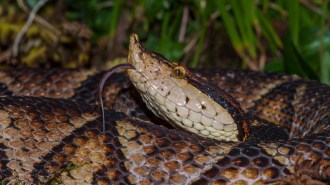 Health & Medicine
Health & MedicineBotox could be used to fight snakebite
A study on rabbits dosed with viper venom suggests that botulinum toxin may alleviate some effects of snakebite, possibly by dampening inflammation.
-
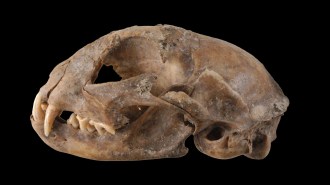 Animals
AnimalsAncient DNA rewrites the tale of when and how cats left Africa
Cats were domesticated in North Africa, but spread to Europe only about 2,000 years ago. Earlier reports of “house” cats were wild cats.
-
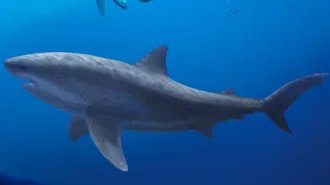 Animals
AnimalsHuge relatives of white sharks lived earlier than thought
Lamniform sharks such as great whites and tiger sharks are famous for their size. The first such giants evolved 15 million years earlier than thought.
-
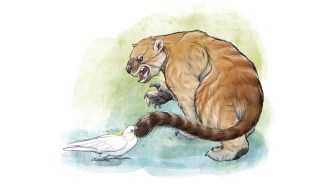 Animals
AnimalsCuddly koalas had a brutal, blade-toothed close cousin
Ancient collagen preserved in the bones of extinct Australian mammals is revealing their evolutionary relationships, leading to some surprises.
-
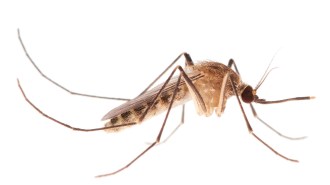 Animals
AnimalsSubway mosquitoes evolved millennia ago in ancient Mediterranean cities
A variety of subway-dwelling mosquito seems like a modern artifact. But genomic analysis reveals the insect got its evolutionary start millennia ago.
- Animals
What the longest woolly rhino horn tells us about the beasts’ biology
A nearly 20,000-year-old woolly rhino horn reveals the extinct herbivores lived as long as modern-day rhinos, despite harsher Ice Age conditions.
-
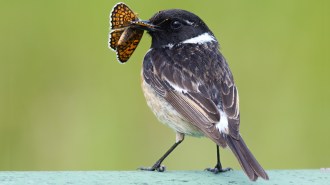 Animals
AnimalsIs camouflage better than warning colors? For insects, it depends
The effectiveness of camouflage or warning colors for insect defense depends on conditions such as light levels and how many predators are around.
-
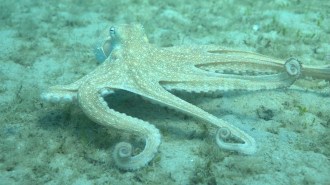 Animals
AnimalsOctopus arms are adaptable but some are favored for particular jobs
Octopuses are ambidextrous, a new study finds, but they favor their front arms for investigating surroundings and their back arms for locomotion.
-
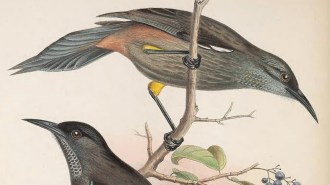 Life
LifeA sixth mass extinction? Not so fast, some scientists say
A new analysis suggests that recent extinctions have been rare, limited mostly to islands and slowing. But others argue this is all just semantics.
-
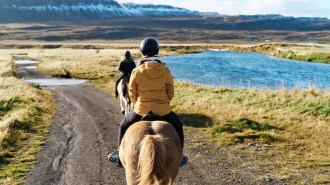 Life
LifeHorses may have become rideable with the help of a genetic mutation
To make horses rideable during domestication, people may have inadvertently targeted a mutation in horses to strengthen their backs and their balance.
-
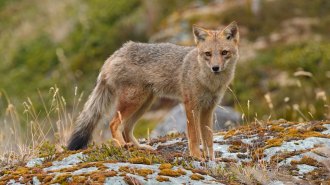 Animals
AnimalsThe mysterious, extinct ‘Fuegian dog’ was actually a semi-tame fox
Historic European accounts long described the canids as domesticated dogs. A new study suggests that’s probably not true.
-
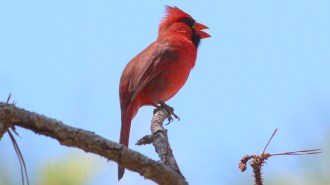 Animals
AnimalsAround the world, birds sing longer in light-polluted areas
In light-polluted landscapes, birds' singing time is an average of 50 minutes longer per day. It's still unclear if this hurts bird health or helps.